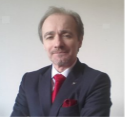Communication ... version 3.0
With the introduction of the first PCs within the work-enviroment, we envisaged a new golden age, where communication and exchange of information would become a soon to be realised utopia; mainly because we would save so much time - and e-mail was not yet standard equipment at that time. Ever since, due to the more than soaring advancement of hard- and software alike, we have already reached a stage, which we could not have fathomed back then.
The question, whether we indeed gained from these new trends and our interactions with customers, colleagues, or even our friends has become better for that matter, seems to be justified. A few snapshots:
- Our sophisticated spreadsheets, real-time multi-coloured presentations to monitor our business processes or planning our increasingly complex projects, have provided us with powerful tools to assist our decisions to reach our objectives.
- E-mails, compared to the old-day's paper correspondence in an envelope, have enabled us to reach anyone, whether next door or at the other side of the globe; and such at the speed of light, instantaneous and without hardly any effort.
- Social media has brought more people into contact than ever before, for various reasons and (mostly) without any borders. Suddenly we can shout out our opinions without any inhibitions, share photos or articles that appeal to us.
Nevertheless, the seemingly great advantages have created also a downside - or better said: we have let it happen: are our management decisions indeed for the (longterm) benefit of the company; feeling an unconscious pressure for instantaneously replying, do we have still enoug htime to overthink the full repercussions (or do we indeed understand what we read); when people in a pub scroll through their smartphones instead of making contact with a person opposite of their table, do we really still communicate?
One could argue, we have made our reality into an online game, without any ramifications - although when turning our negatively, it is often merely being shrugged off. Much of our knowledge and intuitive skills have become of secondary importance - if not less - simply because we trust the answer is ready-prepacked somewhere on the internet. We put too much value on specialising and therefore fragmentising issues and detaching them out of their context; thus losing the versatility of analytical thinking.
It would be good to reflect more on the fact that we have de facto fully 'outsourced' our skills to our gadgets and that the so-called "time-saver' have increased our stress levels and risks lurking, which will demand much energy to be undone. Realising such risks and learning to take more time, saves not only your own health, but gives the other (be it your colleague, client or a friend) the feeling of being valued. Imagine a considerable sudden power breakdown, how far would you be able to continue your way of business... life? Then our sincere contacts, where we invested our time, will be the only guarantee to get forward. The saying says: "Time is money". But it is not just saying "make it short else it will cost me". To the contrary: the more time you (wiesely) spend, the more lasting value it will bring somehow. And that's priceless!
(PS ... and if you had enough patience to read till the end, you have a head start!)
(PS ... and if you had enough patience to read till the end, you have a head start!)
associate partner
Flow4Biz


